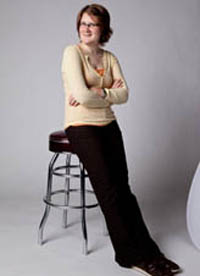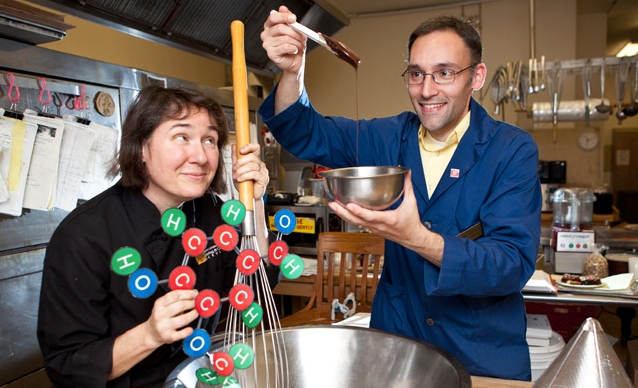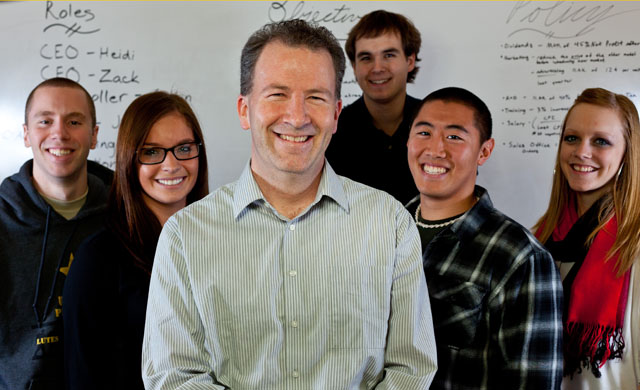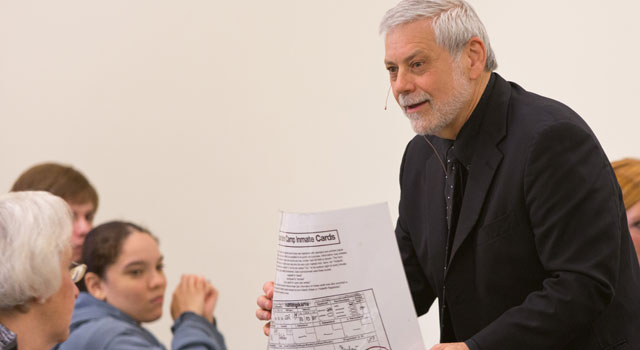Page 262 • (3,729 results in 0.038 seconds)
-
English Literature graduate from Pacific Lutheran University with minors in History and Holocaust and Genocide Studies whose interests are also firmly rooted in the long nineteenth century- especially Austen. She is compelled by the intersections of gender, trauma, and race endemic to these areas of research. She is currently completing a Masters in Publishing Studies at the University of Stirling in Scotland with the intention of pursuing a career in the publishing sector. It is hard for her to
-
interested in all aspects of German cultural and history. Her research and publications are focused on the role of the artist in public discourse in East and West Germany, as well as on the exhibition of contemporary art as a cultural and political force in the Cold War era and today. Her most recent work deals with contemporary art and cultural integration. PLU Faculty ProfileIn addition to teaching on topics such as gender issues, identity, and memory in modern and contemporary art, Heather is
-

happier lives in the moment and over time. The importance of service is enhanced by the importance of ensuring the transition of theory to practice by always staying current with literature and striving to be the best professional I can be for those I am working with and helping in their lives. I believe that PLU’s program has prepared me for the job hunt process as well as for my future career by developing my ability to research seminal and current research as well as emphasizing theory to practice
-
also given honorary memberships in professional associations.Careers for Mathematics MajorsThere are a variety of satisfying occupations that require substantial mathematical preparation. Some of these are: Actuary Cryptographer/Cryptanalyst (code maker and breaker) Economist Operations Research Analyst Research Mathematician in Industry or Academia Statistician or Biostatistician Systems Analyst Secondary School or College Teacher Many students use a mathematics major as a springboard for graduate
-

[Deej] Heath. I could always talk to them about not only mathematics but navigating university and life in general. Do you have plans set for after graduation? I applied to various grad schools. I’m interested in the academic path of talking about our fellow humans within the realm of justice. I am also doing research assistance with a professor at UC Irvine about activist groups participating in open rescuing of animals from research labs or factory farms. Read Previous Brian Sung ’24 discusses his
-

aspect of this to take into account is sustainability, accessibility and outreach to growers and consumers. With more research, the long-term impacts of farming and agricultural techniques can be found, and more responsible farming techniques can be implemented to help protect food growth and security. Outreach is another important component of plant biology and agriculture, because there are many misconceptions about genetic engineering in plants in particular, so direct communication between
-

she never considered before. She asked herself an essential question: How do normal people apply social justice to their everyday lives and jobs? She had prepared thoroughly to become a medical doctor. Even though her passion wasn’t gone, something was changing. Thiele participated in a summer undergraduate research project with Mary Ellard-Ivey, associate professor of biology. They worked to create better plant development in third-world countries. She never thought about working with plants, but
-

sprinkle in a little dry humor, and mix slowly. Lytle is not a chef – at least professionally. In fact, at one point in his life, Lytle pursued a path toward becoming a Lutheran pastor before he discovered that teaching chemistry was his true calling. Like the sermons he once envisioned, his lectures reveal an evangelistic zeal for helping others learn chemistry. After receiving his Ph.D. in Chemistry from the University of Minnesota, Lytle spent three years at the U.S. Naval Research Laboratory
-

university where he would ultimately teach, his thought process was similar to that of a high school student looking for a college. (And considering he has a daughter in college now and a high school senior exploring all options, he has some recent experience.) Every university, after all, has its positives and negatives. Brown considered his options. “Do I want a larger school where there may be greater opportunities for research,” he asked. “Do I want a school where teaching is prized; where it is
-

of about 100 people who came to listen to him talk about the years of research, and hundreds of archives searched for his book. “But it would not have the industrial, automated Holocaust,” where each camp had a number, each victim had a tattoo and each victim was researched back through the generations. Black talk was part of the Fall Lecture series under the Kurt Mayer Chair in Holocaust Studies programs. The second lecture will be Nov. 15, when Peter Altmann will present a special viewing of
Do you have any feedback for us? If so, feel free to use our Feedback Form.


